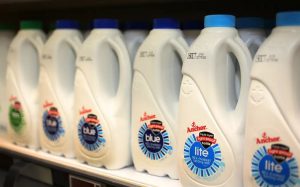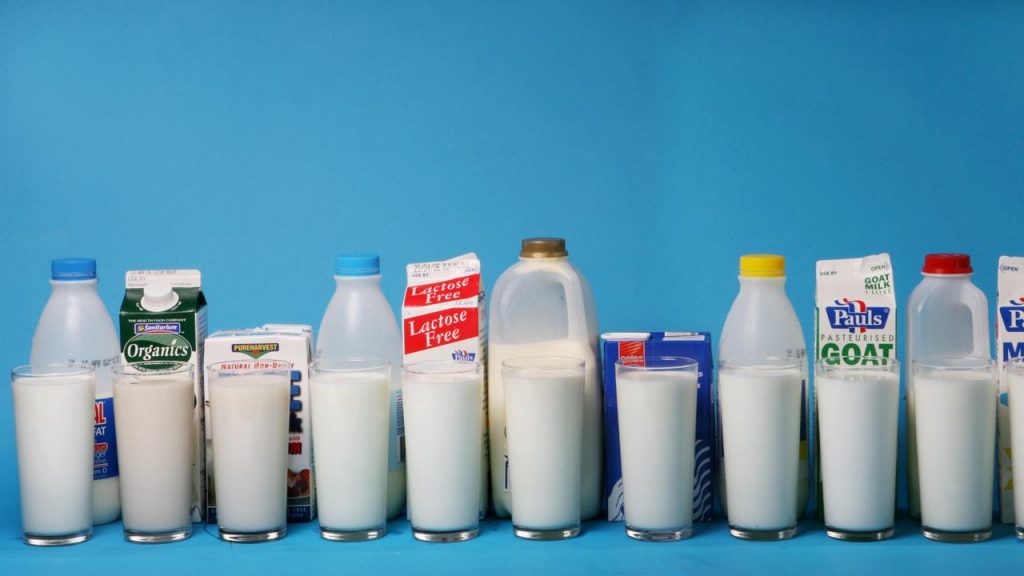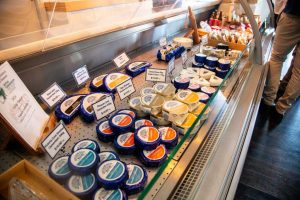
Dairy alternatives such as soy, almond and oat account for less than 10 per cent of all milk sold nationally, new grocery data has revealed.
More than three out of every four milk products purchased in the past year has been the fresh dairy variety, the Nielsen HomeScan data shows.
Fresh milk accounted for 76.2 per cent of total volume sales in the past 12 months to August, while long-life variants hold a 15.8 per cent market share.
Plant-based milk alternatives made up the remaining 8 per cent of sales nationwide from supermarket and milk bar refrigerators.
Dairy Australia analyst Sofia Omstedt said despite the growing variety of plant-based beverages derived from almond, oat, pea, soy and algae, milk from cattle still dominated at the checkout.
“Plant-based beverages receive a lot of attention but milk from Australian dairy is still enjoyed by the majority of shoppers,” she said.
“A vast majority of Australian households — 98 per cent — regularly purchase milk and only 2 per cent of households buy plant-based beverages only.
“A common purchasing practice is buying both milk and plant-based alternatives. The research shows 40 per cent of households take this approach.”
The data from Dairy Australia showed sales of both fresh and long-life milk varieties decreased in the past year, down 1.4 per cent and 7 per cent respectively.
Ms Omstedt said this was due to the panic buying associated with the first pandemic lockdowns in 2020 subsiding and shoppers reverting to long-term purchasing trends.
Meanwhile, consumers bought 8.1 per cent more plant-based beverages than the year before, with oat products especially gaining traction while coconut and rice products dropping in popularity.
The market research showed shoppers who bought plant-based beverages tended to be younger
Australians without children or families with either very young or teenage children.
“Despite the increase in sales of plant-based beverages, dairy milk is still regarded by the majority of Australians as a nutritious product,” Ms Omstedt said.
Source: Alex Sinnott, The Weekly Times, 26 September 2021

























